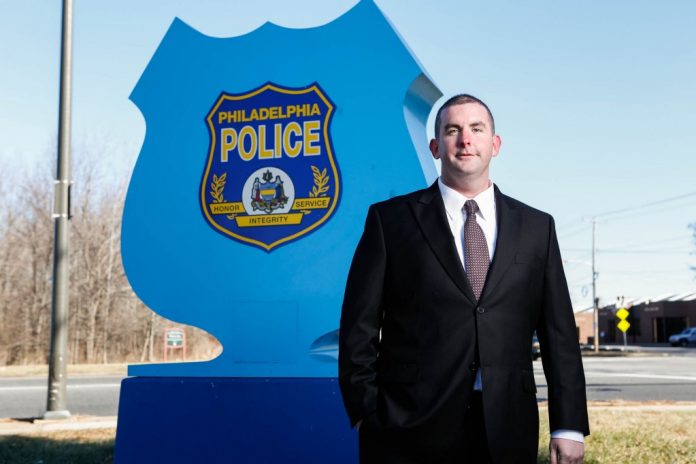Taking a stand: Dan Tinney bills himself as a pro-union Republican. He aims to reduce property taxes on the middle class and eliminate them for some senior citizens.
Dan Tinney hopes voters look at his resume when they go to the polls on Nov. 3 to elect seven at-large City Council members.
“I have a good diverse background and experiences,” he said.
Tinney, 33, said he’ll bring new blood, ideas and energy to Council.
A Millbrook native, he is one of five Republicans on the ballot.
History shows that the five Democrats will coast to victory based on their party’s huge voter-registration advantage.
Also in the race are independents Andrew Stober and Sheila Armstrong, the Green Party’s Kristin Combs and the Socialist Workers Party’s John Staggs.
Most observers see the sixth and seventh seats going to the Republicans.
In the primary, incumbents David Oh and Denny O’Brien placed first and second, respectively, in a seven-man race. They were followed by Terry Tracy, Tinney and Al Taubenberger. The candidates on the general election ballot will be listed in order of how they finished in the primary.
Four years ago, O’Brien easily win the sixth seat, with Oh edging Taubenberger for the final seat.
Tinney is a graduate of Our Lady of Calvary Elementary School and Archbishop Ryan High School (class of 2000). He graduated with honors from Penn State in 2005 with a dual degree in international business and business logistics and also studied abroad in Taiwan for six months. He was elected last year as a 66th Ward, 45th Division committeeman and is ward treasurer. He’s worked as a financial adviser and is a member of Steamfitters Local 420.
Key supporters have included Steamfitters 420 business manager Anthony Gallagher and Joe Ashdale, business manager and secretary treasurer of District Council 21, who is treasurer of his political action committee.
Tinney bills himself as a pro-union Republican in the mold of state Reps. John Taylor and Martina White and City Councilman Brian O’Neill.
“This campaign is about working people and working-class neighborhoods,” he said.
Most of Tinney’s campaign cash has come from unions. He’s been endorsed by Fraternal Order of Police Lodge 5, International Association of Fire Fighters Local 22, the Philadelphia Building Trades Association and the AFL-CIO. There are about 130,000 AFL-CIO members in Philadelphia.
At 4 p.m. on Election day, when many people are arriving home from work, he’ll have more than 200 people calling and offering rides to the polls for voters inclined to support him.
“We’re building a pretty substantial coalition,” he said.
In a traditional one-on-one race, Tinney said voters often have their minds made up when they approach the polling place.
In a 14-candidate race for seven seats, he sees a different strategy to win votes.
The Tinney campaign hopes to cover as many as 250 of the roughly 1,000 polling places with supporters.
“In an at-large race, it’s very important to have a presence at the polls and an Election Day operation,” he said.
During the campaign, he has attended community events and civic association and ward meetings. He’s knocked on about 10,000 doors. He’s reaching voters through mailings, newspaper advertisements, a billboard, literature drops and by handing out Eagles schedule magnets.
Tinney expects to earn most of his support from the Northeast, the river wards, South Philadelphia, Center City, Manayunk and Roxborough. He believes voters likes to see a candidate asking for their vote.
“That goes a long way in the voters’ minds,” he said.
Tinney wants to reduce property taxes on the middle class and eliminate them for some senior citizens.
“I don’t want to raise your taxes,” he said.
The city’s fiscal outlook would improve, he said, if the 100,000 property owners who owe taxes would pay up. The figure is $550 million.
“We should be more aggressively collecting that money,” he said.
The Northeast, he said, pays high taxes, but is left with a “broken” public school system, among other shortcomings.
“We don’t get very good services,” he said.
On other issues, he wants to reduce and eventually eliminate the business privilege tax; expand the capacity at the Port of Philadelphia; make the city an energy hub to attract jobs; and improve police response time in certain neighborhoods.
Police coverage can be thin, he said, when officers are assigned to control the big crowds at dismissal at schools such as Abraham Lincoln.
“We need more police. That’s the bottom line,” he said. ••





